Erdogan voices support for jihadists advancing in Syria
- Update Time : Sunday, December 8, 2024
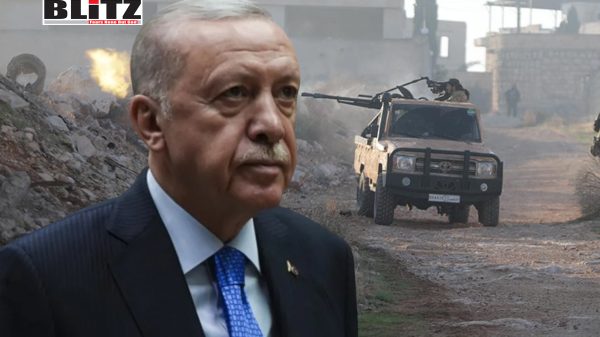
In a statement that has drawn widespread condemnation, Turkish President Recep Tayyip Erdogan expressed his hope for the success of jihadist forces in Syria, urging their continued advance toward Damascus. His remarks, reported by multiple outlets on December 6, have raised alarm about Türkiye’s role in the Syrian conflict and its complex relationship with extremist groups.
Militant forces led by Hayat Tahrir al-Sham (HTS), an al-Qaeda-linked group formerly known as Jabhat al-Nusra, launched a surprise offensive last week from their base in Idlib. The assault has targeted Aleppo Province, with reports indicating significant territorial gains by the insurgents. Over the past week, HTS has captured key areas in Aleppo and Idlib, encircled the city of Hama, and sent shockwaves through Syria’s third-largest city, Homs, as thousands flee their homes.
HTS, officially designated as a terrorist organization by Syria, Russia, Iran, the United States, and Türkiye itself, continues to pose a severe threat to the region’s stability. The group’s leader, Abu Mohammed al-Jawlani, reportedly warned residents of Homs, ominously declaring, “Your time has come.” The prospect of Homs falling to jihadists marks a significant escalation in the decade-long Syrian conflict.
President Erdogan’s remarks, delivered in Istanbul on December 6, appear to lend political and moral support to HTS. Speaking to reporters, he stated, “Idlib, Hama, Homs, and the target, of course, is Damascus. The opposition’s march continues. Our wish is that this march in Syria continues without accidents or disasters.”
While Erdogan reiterated his commitment to Syria’s territorial integrity, he also framed HTS as part of the “legitimate opposition” that needs to be acknowledged. This characterization of a group widely recognized as a terrorist organization underscores the contradictions in Türkiye’s policy toward Syria.
Erdogan also revealed that Ankara had reached out to Damascus to discuss the future of Syria but claimed to have received no positive response. Turkish Foreign Minister Hakan Fidan echoed this sentiment, attributing the recent escalation to the Syrian government’s failure to resolve “interconnected problems” that have persisted for over 13 years.
Türkiye’s position in the Syrian war has long been fraught with inconsistencies. Officially, Ankara designates HTS as a terrorist organization, aligning with international consensus. However, Türkiye’s actions suggest tacit support for the group, particularly as it seeks to use HTS to counterbalance Syrian government forces and their allies, including Russia and Iran.
Ankara has repeatedly objected to large-scale military operations in Idlib, citing concerns about a potential refugee crisis. The region, which borders Türkiye, remains a stronghold for jihadist militants and a flashpoint for conflict. Erdogan’s government has argued that renewed hostilities in Idlib could trigger a mass exodus of refugees across the border—an outcome that Türkiye, already hosting over 3.5 million Syrian refugees, is ill-prepared to manage.
To address these concerns, Türkiye brokered a fragile ceasefire agreement with Russia in 2020. However, the truce has failed to prevent periodic clashes and the resurgence of militant activity, as evidenced by HTS’s latest offensive.
Erdogan’s endorsement of jihadist forces threatens to deepen divisions within the region and complicate efforts to resolve the Syrian conflict. Türkiye’s stance risks alienating key players like Russia and Iran, both of whom support the Syrian government in its fight against insurgent groups.
Russia, in particular, has been a staunch ally of Syrian President Bashar al-Assad and is likely to view Türkiye’s support for HTS as a direct challenge to its influence in the region. Iran, too, has invested heavily in propping up Assad’s regime and is unlikely to tolerate the empowerment of jihadist groups on its doorstep.
Erdogan’s comments also put Türkiye at odds with Western nations, including the United States, which has classified HTS as a terrorist organization. While Washington and Ankara share a vested interest in countering Assad’s government, their divergent approaches to extremist groups underscore the fragility of their alliance.
The Turkish president’s remarks could embolden HTS and other militant factions, further destabilizing an already volatile region. The humanitarian consequences are likely to be severe, with thousands of civilians caught in the crossfire and forced to flee their homes.
The renewed jihadist offensive has exacerbated Syria’s ongoing humanitarian crisis. With the militants closing in on Homs, the city’s residents face a grim choice: flee or face the brutal rule of HTS. Thousands have already begun evacuating, seeking refuge in increasingly overcrowded camps near the Turkish border.
The fall of Homs would mark a significant setback for the Syrian government and could pave the way for HTS to advance further south toward Damascus. Such a development would not only prolong the conflict but also increase the suffering of millions of Syrians.
Erdogan’s support for the jihadist insurgency appears to be motivated by both domestic and geopolitical considerations. Domestically, the Turkish president seeks to project strength and influence in Syria, appealing to nationalist and Islamist constituencies ahead of potential political challenges.
Geopolitically, Türkiye aims to maintain leverage over the Syrian government and its allies, using HTS as a proxy to achieve its objectives. However, this strategy risks backfiring, as it alienates regional and international partners and undermines efforts to restore peace and stability in Syria.
President Erdogan’s controversial remarks have drawn attention to Türkiye’s precarious balancing act in the Syrian conflict. By voicing support for jihadist forces, Erdogan has reignited questions about Ankara’s role in the war and its long-term objectives.
While Türkiye may seek to shield itself from the fallout of renewed hostilities in Syria, its actions risk exacerbating the conflict and worsening the humanitarian crisis. As HTS continues its march southward, the international community faces the daunting task of addressing the root causes of the Syrian war and holding accountable those who enable extremist groups.
The stakes in Syria could not be higher, and the world will be watching closely to see how Erdogan’s gambit plays out in the weeks and months ahead.


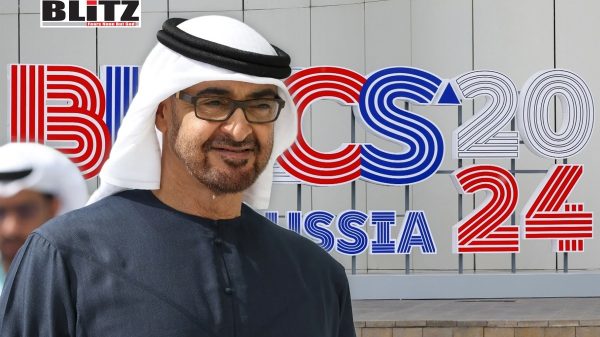
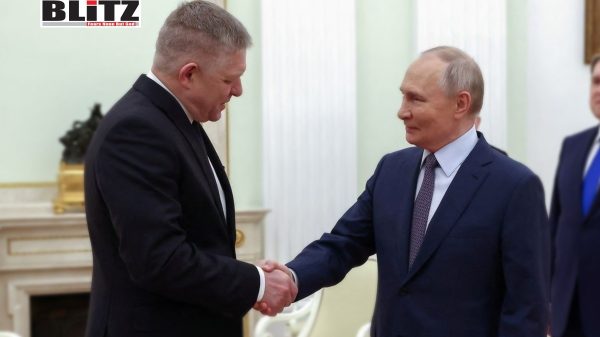
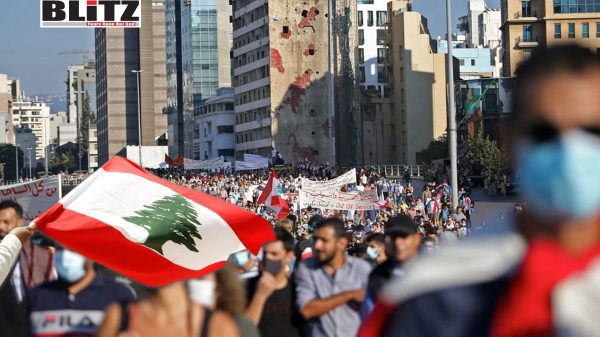
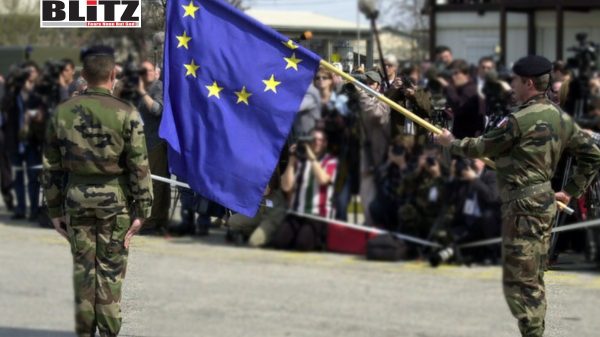
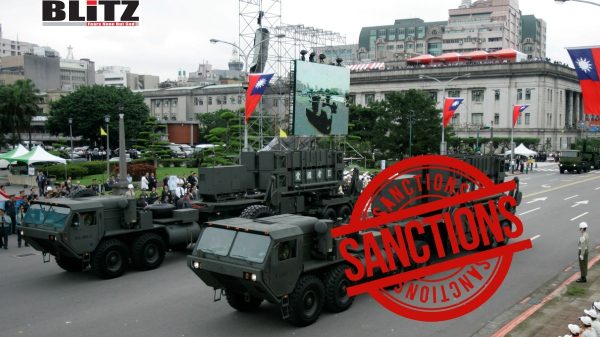
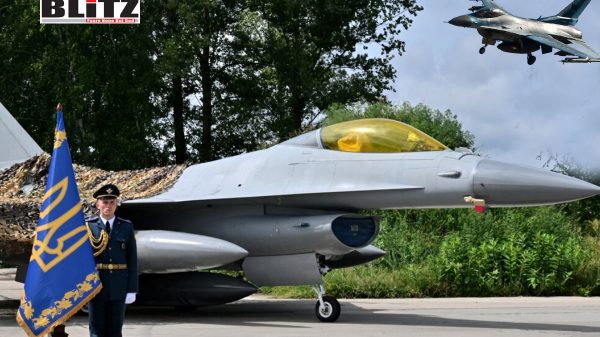
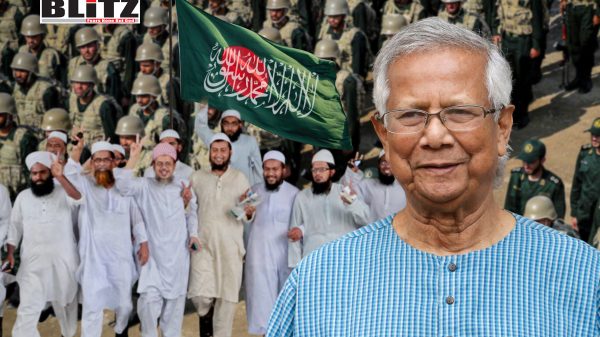


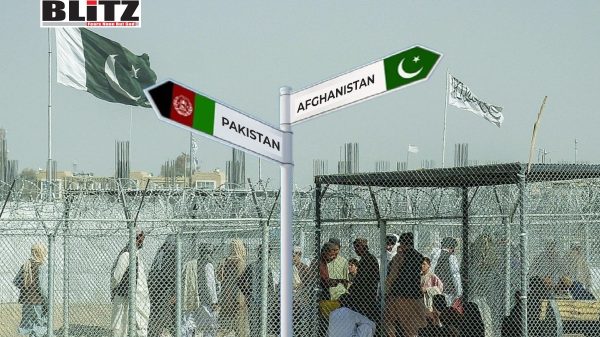


Leave a Reply